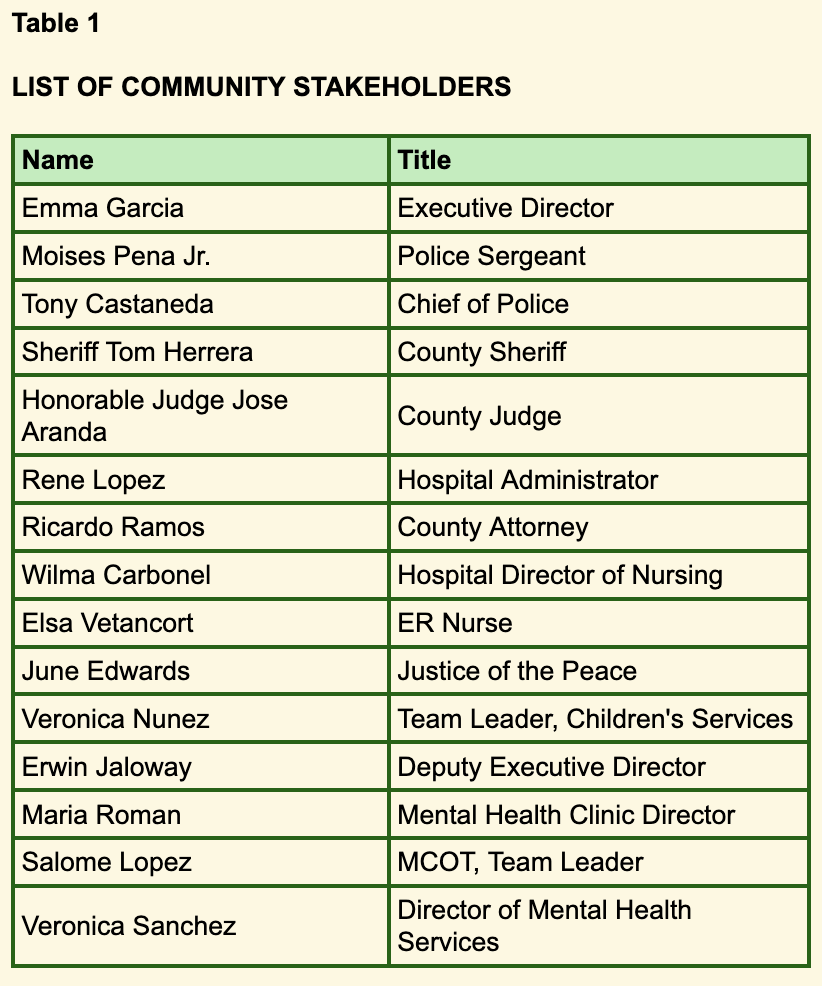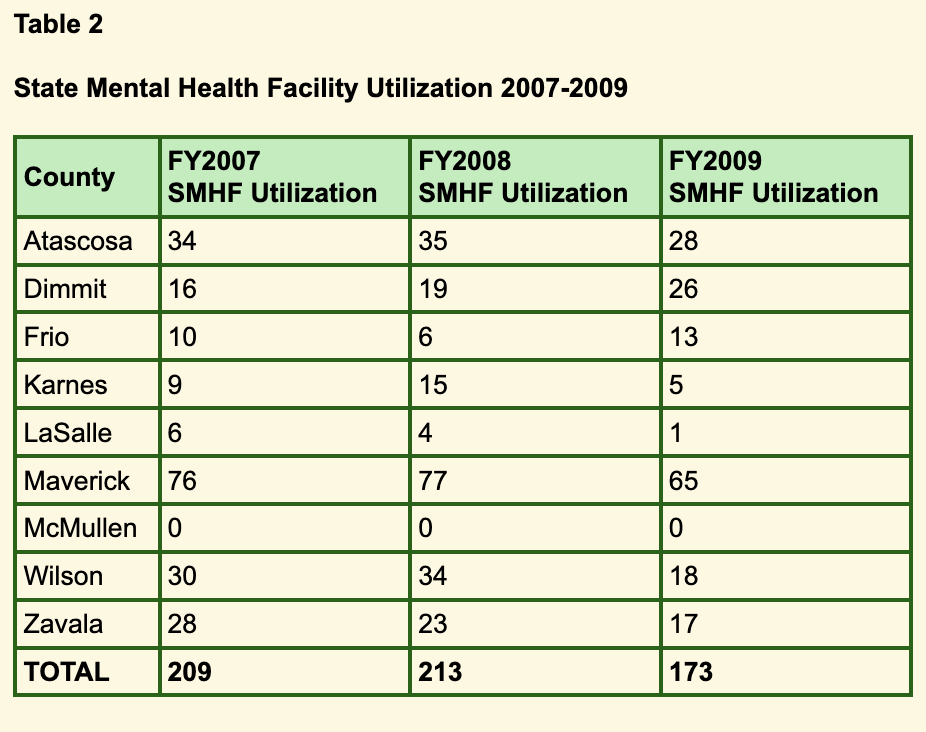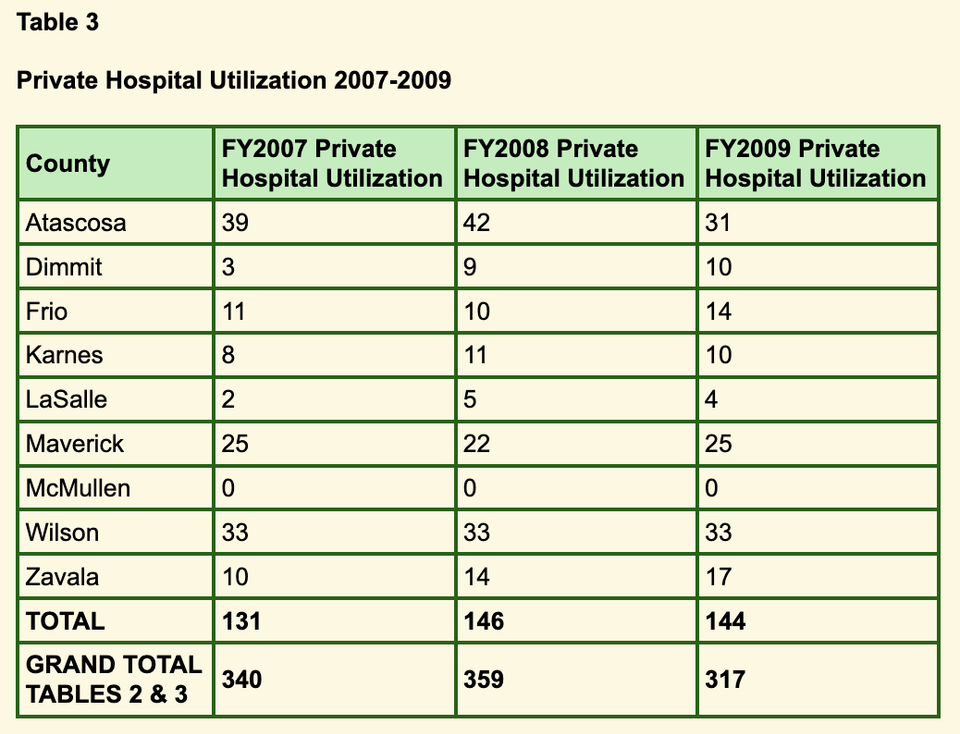Camino Real Community Services
Crisis Service Plan 2010-2011
3/1/2010
Mental Health Service Department
Veronica Sanchez, MA, LPC
Director of Mental Health Services
Veronica Sanchez, MA, LPC
Director of Mental Health Services
GOAL:
- Enhance crisis response system
OBJECTIVES:
- Rapid response
- Local stabilization when possible
- Reduced burden on law enforcement, and
- Decrease utilization of emergency healthcare resources.
Camino Real Community Services consists of a 9 county service area, which serves approximately 2686 adults and 871 children annually. Of those served during fiscal year 2009 approximately 1089 (unduplicated count) were provided crisis services. This was a significant increase from 2007 data which was 750 when the 2008 center crisis plan was submitted. The FY2009 24 Hour Crisis Hotline data indicates 2486 calls were received through the hotline and of those 763 contacts were considered Emergent calls requiring a 1 hour face to face assessment by a Qualified Mental Health Professional-Community Services (QMHP-CS). Out of the 763 persons assessed a total of 317 consumers were hospitalized by the local mental health authority during fiscal year 2009. This is a decrease from the FY2007 data during which time a total of 340 persons were hospitalized and a decrease from FY2008 when 359 hospitalizations were documented.
Overall since the implementation of the initial Crisis Plan the center is showing a decrease in the utilization of inpatient hospitalization as well as utilization of state hospital beds. This information was gathered from our database.
DESCRIPTION OF PLANNING WITH COMMUNITY STAKEHOLDERS
When initially developing the crisis service plan, stakeholder meetings and discussion groups were organized through the leadership of the executive director who worked in collaboration with the local county officials. A goal was established by the group and the group moved forward through many discussions in developing agreements that could improve the crisis response system. The Crisis Task Force Group met formally three times between May and August 2007. During 2008 and 2009 the group remains active and continues to meet to address community needs related to Crisis Services.
In Maverick County where the MCOT was established meetings are held every quarter with the Crisis Task Force stakeholders noted in Table 1. The focus of the meetings remain consistent with the goal of ensuring citizens have access to the best crisis response system. During 2008 3 suicides heightened awareness around the issues related to mental health crisis services causing a renewed effort, on the part of the community, to work with the center on awareness and prevention projects. Since these incidents a Suicide Prevention Task Force has been formed. The group meets monthly and has moved forward in investing time and resources.
Through sharing of information and resources the task force groups intend to enhance access to the community services and supports as well as identify a way to address the various gaps in services. The task force groups also intend to enhance services to persons experiencing a behavioral health crisis by focusing on educating the public. The Center staff will continue to work diligently to participate in existing workgroups and will work towards holding ongoing stakeholder meetings throughout the year for purposes of securing feedback related to crisis response services as well as other services.



